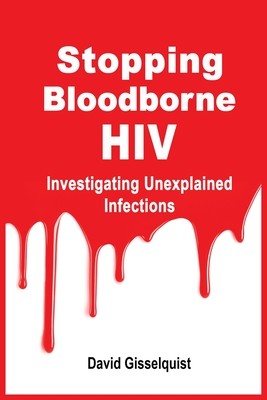
- We will send in 10–14 business days.
- Author: David Gisselquist
- Publisher: Adonis & Abbey Publishers
- ISBN-10: 1913976017
- ISBN-13: 9781913976019
- Format: 15.6 x 23.4 x 0.8 cm, minkšti viršeliai
- Language: English
- SAVE -10% with code: EXTRA
Reviews
Description
In recent years, more testing and treatment have changed HIV epidemics in Africa, allowing most HIV-positive people to lead near normal lives. At the same time, with more HIV testing, hundreds of thousands of people are finding unexplained HIV infections in themselves, family members, and friends. Unexplained infections come from bloodborne risks - skin-piercing procedures - with unsterile instruments during health care and cosmetic procedures. Until someone finds and fixes those risks, they can continue to infect others. What can be done?
Stopping Bloodborne Risks describes how communities and governments around the world have investigated unexplained HIV infections to find other victims and to find and fix bloodborne risks. In some countries, private people and communities have started informal investigations. In others, people have appealed to governments, even protesting to national leaders. Individuals and communities can make a difference.
___
David Gisselquist is an independent consultant with experience in anthropology, rural development, and health. He has published extensively in medical journals on bloodborne risks for HIV in Africa, and has spoken on bloodborne risks at WHO and at international AIDS conferences. Dr. Gisselquist has written a history of Africa's HIV epidemics, Points to Consider (Adonis & Abbey, 2008) and has co-edited a collection of country studies on injection practices, Pilot-Testing the WHO Tools to Assess and Evaluate Injection Practices (WHO, 2003). He has worked short-term in more than a dozen African countries, including two years in Rwanda, and has assisted field research on HIV in Kenya and India. He has a PhD in economics.
EXTRA 10 % discount with code: EXTRA
The promotion ends in 22d.08:29:39
The discount code is valid when purchasing from 10 €. Discounts do not stack.
- Author: David Gisselquist
- Publisher: Adonis & Abbey Publishers
- ISBN-10: 1913976017
- ISBN-13: 9781913976019
- Format: 15.6 x 23.4 x 0.8 cm, minkšti viršeliai
- Language: English English
In recent years, more testing and treatment have changed HIV epidemics in Africa, allowing most HIV-positive people to lead near normal lives. At the same time, with more HIV testing, hundreds of thousands of people are finding unexplained HIV infections in themselves, family members, and friends. Unexplained infections come from bloodborne risks - skin-piercing procedures - with unsterile instruments during health care and cosmetic procedures. Until someone finds and fixes those risks, they can continue to infect others. What can be done?
Stopping Bloodborne Risks describes how communities and governments around the world have investigated unexplained HIV infections to find other victims and to find and fix bloodborne risks. In some countries, private people and communities have started informal investigations. In others, people have appealed to governments, even protesting to national leaders. Individuals and communities can make a difference.
___
David Gisselquist is an independent consultant with experience in anthropology, rural development, and health. He has published extensively in medical journals on bloodborne risks for HIV in Africa, and has spoken on bloodborne risks at WHO and at international AIDS conferences. Dr. Gisselquist has written a history of Africa's HIV epidemics, Points to Consider (Adonis & Abbey, 2008) and has co-edited a collection of country studies on injection practices, Pilot-Testing the WHO Tools to Assess and Evaluate Injection Practices (WHO, 2003). He has worked short-term in more than a dozen African countries, including two years in Rwanda, and has assisted field research on HIV in Kenya and India. He has a PhD in economics.


Reviews